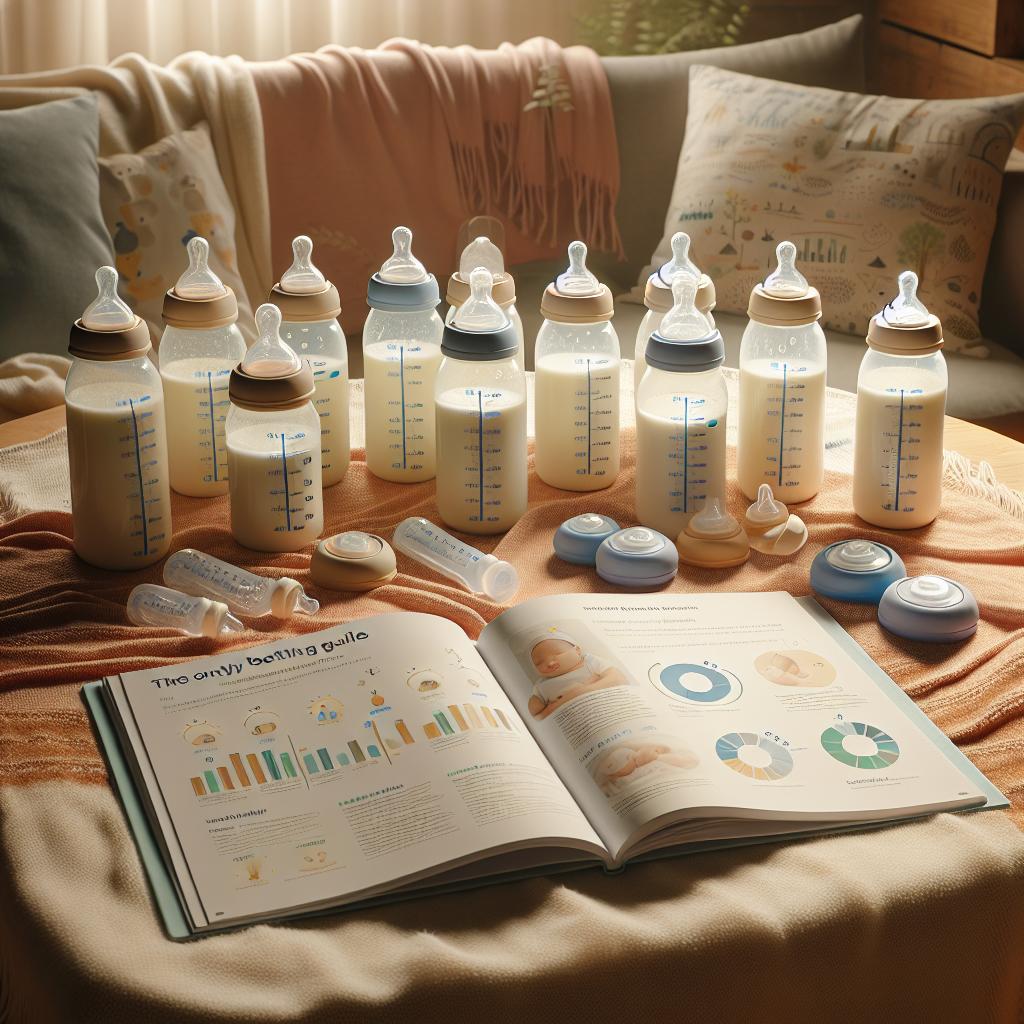Understanding Happy Bottle Feedings
Feeding time should be one of the most rewarding experiences for parents. However, making baby happy during bottle feedings can sometimes require a dash of patience and untapped parenting wisdom. Here, we’ll explore techniques that can make every happy bottle feeding a truly joyful moment.
Causes of Unhappiness During Bottle Feeding
Before we delve into solutions, it’s important to understand some of the reasons why babies may be unhappy during bottle feedings. Factors such as reflux, bottle rejection, or even distraction could affect the general mood during feeding time (WebMD).
- Reflux: This is a common condition in babies that could cause discomfort during feedings. Reflux happens when food and gastric acid flow back up from the baby’s stomach, causing discomfort and spit-up (OSF Healthcare).
- Bottle rejection: Bottle-fed infants might sometimes reject the bottle due to a variety of reasons. These might include preferring breastfeeding, discomfort with the bottle’s nipple, or even disliking the formula taste (Bottle Wizard).
- Distraction: Babies might get distracted during feedings due to noise, movement, or their natural curiosity. Distractions can make them lose interest in their bottle, leading to fussiness and unhappiness.
Creating a Joyful Feeding Environment
Another crucial step towards achieving feeding joy is creating a serene and comforting environment. Here’s how:
- Quiet and calm surroundings: Choose a place that’s free from noise and distractions. This will help your baby focus on feeding and reduce fussiness.
- Comfortable feeding position: Hold your baby in a semi-upright position during feeding to help prevent reflux. Also, make sure you are comfortable too. This can contribute significantly to a happy bottle feeding experience.
- Warm interaction: Communicate warmly with your baby during feeding. Maintain eye contact, smile often, and reassure them with soothing words. This interaction not only strengthens your bond with your baby but also promotes a positive feeding experience.
Tips for Happy Bottle Feedings
Following are some useful tips that can help ensure your baby stays happy during bottle feedings:
- Choose the right nipple: The bottle’s nipple can make a significant difference in your baby’s feeding experience. Babies generally prefer nipples that mimic the shape and flow of their mother’s breast. Also, consider the nipple’s material and its flow speed (Bottle Wizard).
- Feed on demand: Feed your baby when they are hungry rather than sticking to a strict feeding schedule. Look for hunger cues like increased alertness, lip movements, and hand-to-mouth actions (Baby Center).
- Consider a feeding switch: If your baby is still unhappy after trying these tips, it might be worth considering a switch. Perhaps from bottle to breastfeeding or vice versa, or even trying a different formula. Consult your pediatrician about your concerns and consider their advice (Bottle Wizard).
Manage Feeding Time Sleepiness
Many babies are known to get distressed when tired and fight sleep. But on the other hand, some babies are notorious for falling asleep during feeding sessions rather than finishing their meal (Happy Family Organics) Sleeping during feedings is quite common with newborns and should not be a cause for concern. But, if the pattern continues as your baby grows, it might result in not consuming enough food for proper growth and development. Strategies such as soft tickling, gently talking to your baby, and alternating between feeding and burping can help them stay alert enough to finish their feed.
Understanding Baby Reflux
Baby reflux, while common in infants, can cause them discomfort during feedings and make them fussy (Seattle Children’s Hospital). If you suspect your baby might have reflux, it’s essential to consult your pediatrician about it. They might recommend smaller, frequent feedings, changing the angle of feeding, or trying different formulas, among other remedies. Also, maintaining proper burping procedures before and after feedings can help reduce reflux symptoms.
Sorting Bottle-Feeding Problems
Bottle-feeding problems can range from difficulty latching onto the nipple, distress during feedings, to digestion troubles (Baby Care Advice). Proper bottle-feeding techniques and advice provided by experts can address most of these issues. Always ensure that your baby is latching onto the bottle correctly, take breaks during feedings, and consult your pediatrician about persistent feeding problems.
Importance of Choosing the Right Infant Formula
It’s important to remember that not all infant formulas suit all babies. Some babies might have allergies, feeding difficulties or might simply not like the taste. The right infant formula should suit your baby’s age, dietary needs, and digestion abilities. Always ensure to consult your baby’s pediatrician before starting a new formula or switching from breastfeeding to formula feeding (NHS).
The Takeaway
Happy bottle feeding requires an understanding of your baby’s needs, a comfortable environment, and a touch of patience. By recognizing the possible issues, and knowing how to solve them, you can make feeding time not just about nutrition but also a bonding time filled with love and smiles!







